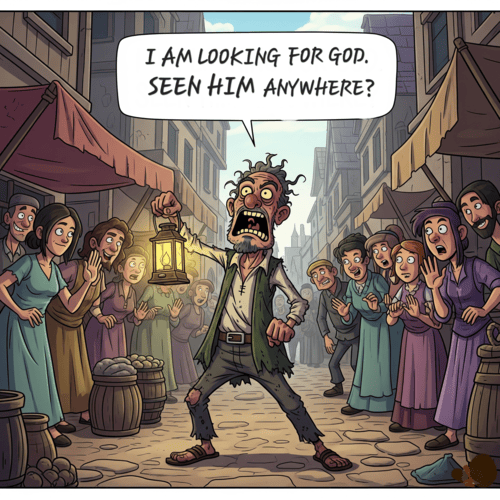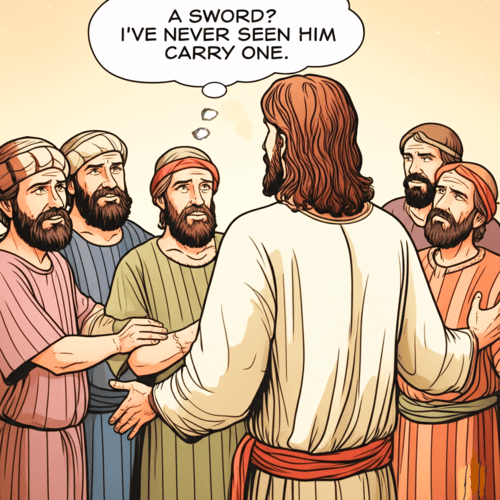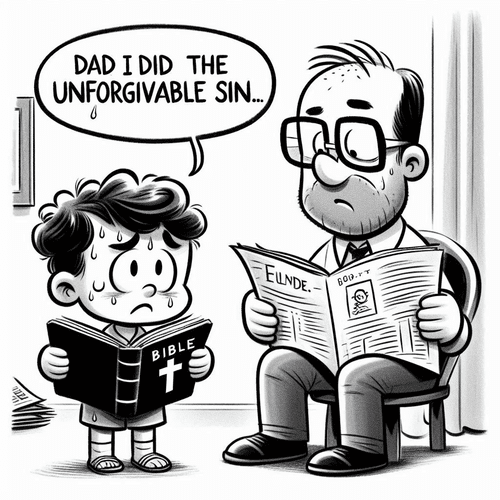Encounter on Damascus Road: How Saul’s Conversion Mirrors Ours
CALVINISM’S ‘TULIP’ ON DISPLAY IN ACTS 9
There’s blinding light. And a voice from heaven. Then there’s complete transformation: Christianity’s great enemy becomes its most passionate advocate. Saul’s encounter on the Damascus road marks not just one of history’s most dramatic conversions—it’s a perfect picture of how God saves each sinner.
Hidden in Acts 9:1-22 are five profound truths about salvation that theologians call TULIP—an acronym representing Total Depravity, Unconditional Election, Limited Atonement, Irresistible Grace, and Perseverance of the Saints. These aren’t abstract theological concepts. They’re spiritual realities behind every genuine conversion, and they’re displayed here in vivid detail in Saul’s life-changing encounter with the risen Christ. Let’s see how his conversion mirrors our own.
TOTAL DEPRAVITY: THE SPIRITUAL BLINDNESS BEFORE THE LIGHT
“But Saul, still breathing threats and murder against the disciples of the Lord, went to the high priest and asked him for letters to the synagogues at Damascus, so that if he found any belonging to the Way, men or women, he might bring them bound to Jerusalem.” (Acts 9:1-2)
Picture Saul before his conversion. He wasn’t just indifferent to Christianity—he was “breathing threats and murder.” The phrase literally means his very breath was filled with violence against God’s people. He wasn’t having a bad day or struggling with doubt. He was actively hunting down Christians to imprison them.
This reveals something crucial about human nature that we often miss: we don’t start neutral toward God. Saul thought he was serving God, but he was actually fighting against Him with every fibre of his being. His religious zeal only made his opposition more intense.
This is what the Bible calls Total Depravity—that sin affects every part of us. Our minds, hearts, and wills are all corrupted. Like Saul, we’re spiritually dead, hostile to God, and completely unable to save ourselves or even genuinely seek Him.
Before God intervened, Saul was incapable of seeing the truth about Jesus. He was spiritually blind, just as he would soon become physically blind. And here’s the uncomfortable truth: this describes every single one of us before conversion. We may not have been persecuting Christians, but we were all rebels against God in our own ways, unable to change our hearts or save ourselves.
UNCONDITIONAL ELECTION: THE UNMERITED DIVINE CHOICE
“But the Lord said to him, ‘Go, for he is a chosen instrument of mine to carry my name before the Gentiles and kings and the children of Israel.’” (Acts 9:15)
Notice something remarkable: God calls Saul “a chosen instrument” while he’s still breathing threats against Christians. This choice didn’t happen after Saul repented, believed, or proved himself worthy. God chose him while he was actively persecuting the church.
The timing is everything. Saul wasn’t seeking God—God was seeking Saul. The encounter on the Damascus road wasn’t Saul’s idea; it was entirely God’s initiative. Even more striking, God had already planned out Saul’s entire future ministry before Saul had any faith at all.
This reveals Unconditional Election—God’s choice to save certain people based entirely on His own will and purpose, not on anything good He sees in them. God didn’t choose Saul because He foresaw that Saul would become a great apostle. Rather, Saul became a great apostle because God chose him.
This can be hard to accept because it goes against our natural thinking. We want to believe God chooses us because we’re somehow better, smarter, or more spiritual than others. But Saul’s conversion destroys that idea completely. God chose the least likely candidate imaginable—Christianity’s chief persecutor—simply because it pleased Him to do so.
The same is true for every believer. God didn’t choose us because we would choose Him. He chose us because of His love and grace, period. Our salvation began in God’s heart long before it ever began in ours.
LIMITED ATONEMENT: THE SPECIFIC REDEMPTIVE PURPOSE
“For I will show him how much he must suffer for my name’s sake.” (Acts 9:16)
God doesn’t just save Saul generally—He saves him for a specific purpose. Christ’s work on the cross didn’t just make Saul’s salvation possible; it guaranteed it. More than that, it secured not only Saul’s conversion but also his specific calling to suffer for Christ’s name among the Gentiles.
This points to Limited Atonement—the truth that Christ’s death on the cross actually secured salvation for specific people, not just made it available to everyone. When Jesus died, He wasn’t just hoping that people like Saul might possibly be saved. He was actually purchasing Saul’s redemption, guaranteeing his conversion, and ensuring his perseverance.
Think about it: if Christ’s death only made salvation possible rather than certain, Saul might never have been converted. The greatest missionary in history might have remained Christianity’s greatest enemy. But God’s plan was never uncertain. Christ’s sacrifice was effective, not just theoretical.
This means Christ’s love is so specific and personal that He actually dies to save particular people, ensuring their salvation rather than merely making it available. When Christ died for us, He wasn’t crossing His fingers hoping we might believe. He was purchasing our redemption and guaranteeing our faith.
IRRESISTIBLE GRACE: THE SOVEREIGN CALL THAT CANNOT BE REFUSED
“Now as he went on his way, he approached Damascus, and suddenly a light from heaven shone around him. And falling to the ground, he heard a voice saying to him, ‘Saul, Saul, why are you persecuting me?’” (Acts 9:3-4)
Saul didn’t decide to stop on the Damascus road for a spiritual conversation. God stopped him. The light was so brilliant it knocked him to the ground and left him blind. The voice was so unmistakable that Saul immediately recognised divine authority. His response wasn’t reluctant compliance—it was immediate surrender: “Who are you, Lord?” and “What shall I do, Lord?”
This demonstrates Irresistible Grace—when God chooses to save someone, His call is always effective. This doesn’t mean God forces people against their will. Rather, He changes their hearts so they willingly respond. He gives them new spiritual life so they can finally see and embrace the truth they were previously blind to.
Notice Saul didn’t resist God’s call, even though he’d been violently opposing Christianity just moments before. Why? Because when God’s grace touches a heart, it creates willing faith. The same power that raised Christ from the dead was at work in Saul, giving him spiritual life and the ability to believe.
This is exactly what happens in every true conversion. We might not have a dramatic Damascus road experience, but the same spiritual reality occurs. God’s Spirit opens our blind eyes, gives us a new heart, and enables us to see Christ as beautiful and trustworthy. When that happens, we don’t reluctantly submit—we gladly believe.
God’s grace is irresistible not because it’s coercive, but because it’s transformative. When He decides to save us, He makes us willing and able to come to Him.
PERSEVERANCE OF THE SAINTS: THE GUARANTEED COMPLETION
“And immediately he proclaimed Jesus in the synagogues, saying, ‘He is the Son of God.’ … But Saul increased all the more in strength, and confounded the Jews who lived in Damascus by proving that Jesus was the Christ.” (Acts 9:20, 22)
Saul’s conversion wasn’t just dramatic—it was lasting. Immediately after his conversion, he began proclaiming Jesus. And he didn’t just start strong then fade away. He “increased all the more in strength,” growing in his faith and effectiveness.
This wasn’t because Saul had exceptional willpower or determination. It was because God’s promise in verse 15 was certain: “he is a chosen instrument of mine.” When God chooses someone and saves them through Christ’s work and the Spirit’s call, He doesn’t abandon them halfway. He completes what He started.
This is Perseverance of the Saints—the truth that everyone God truly saves will be kept by His power until the end. It’s not that Christians never struggle or doubt, but that genuine believers will never completely fall away from faith. God’s saving work is too complete and His love too strong to let His children go.
Look at Saul’s life as Paul the apostle. He faced imprisonments, beatings, shipwrecks, and constant opposition. He struggled with a “thorn in the flesh” and deep concerns for the churches he planted. Yet he never abandoned his faith. Why? Because the same God who chose him, died for him, and called him effectually was also keeping him secure.
This should give every believer comfort. Our salvation doesn’t depend on our ability to hold onto God, but on God’s ability to hold onto us. The One who began a good work in us will bring it to completion.
WHY THIS MATTERS
Understanding these truths about salvation changes everything. It humbles us because we realise we contributed nothing to our salvation—it was all God’s work. It comforts us because we know our salvation is secure in God’s hands, not dependent on our imperfect efforts. And it amazes us as we grasp the depth of God’s love in choosing to save rebellious sinners like Saul—and like us.
Most importantly, it gives all the glory to God where it belongs. Saul didn’t convert himself through superior spiritual insight or moral effort. God converted Saul through sovereign grace. And the same is true for us.
The Damascus road encounter wasn’t just about one dramatic conversion long ago. It’s a window into the heart of God and the nature of salvation itself. Every time someone truly comes to faith in Christ, the same divine grace that stopped Saul in his tracks is at work—choosing, calling, converting, and keeping them secure forever.
That’s life-changing. And that’s grace.
HOW SAUL’S CONVERSION MIRRORS OURS: RELATED FAQs
Why are the 5 points called the “doctrines of grace”? The term “doctrines of grace” emphasises what these teachings are really about—God’s unmerited favour toward sinners. While they’re historically associated with John Calvin, these truths were clearly taught by Augustine centuries earlier and can be found throughout Scripture. Reformed scholars like RC Sproul and John MacArthur prefer “doctrines of grace” because it highlights the central theme: salvation is entirely a work of God’s grace, not human effort or cooperation.
- What’s the difference between monergism and synergism in salvation? Monergism means God alone (mono) does the work (ergon) of salvation—He initiates, accomplishes, and completes our redemption without our cooperation. Synergism means God and we work together (syn = together) in salvation: we contribute faith, repentance, or perseverance. The five points teach monergism: like Saul on the Damascus road, we’re passive recipients of God’s saving work. We respond willingly, but only because God first changes our hearts to make us willing.
- If God chooses who gets saved, why should we evangelise? This question puzzled even the apostles, but Scripture teaches both divine sovereignty and human responsibility. Charles Spurgeon called this the “blessed inconsistency” of preaching—we preach to everyone because we don’t know who God’s elect are, and God typically uses the preaching of the gospel as His means of calling His chosen ones. Just as God used Ananias to minister to the already-converted Saul, He uses our evangelism as part of His sovereign plan. We evangelise because God commands it and because He often saves people through the faithful proclamation of His Word.
How do we view verses that seem to suggest God wants everyone saved? Reformed theologians like John Piper and Sinclair Ferguson distinguish between God’s revealed will (what He commands) and His secret will (what He decrees). When 2 Peter 3:9 says God is “not willing that any should perish,” they understand this as referring to the elect (“any of you” in context) or as expressing God’s general benevolence while acknowledging His sovereign choice in salvation. They argue that if God truly wanted everyone saved and had the power to save everyone, then everyone would be saved—but Scripture clearly teaches not all will be saved.
- What about human free will? Don’t we choose to believe? Reformed theology teaches that humans do choose—but our choices flow from our nature. Before conversion, we’re enslaved to sin and spiritually dead, so we freely choose to reject God (this is called “natural freedom”). After God regenerates us, we freely choose to believe because He’s given us a new nature that desires Christ. Think of Saul: nobody forced him to believe, but once God opened his spiritual eyes, he willingly embraced Christ. We have the freedom to choose according to our nature, but we need God to change our nature first.
- How do these doctrines provide comfort during doubts or spiritual struggles? The doctrines of grace offer profound assurance because they root our security in God’s character, not our performance. When we doubt our salvation, we can remember God chose us before we chose Him, Christ died specifically to secure our salvation, and God’s Spirit effectively called us—none of which depend on our feelings or current spiritual state. Martyn Lloyd-Jones taught that when we’re struggling, we should remind ourselves our salvation rests on what God has done, not on what we’re currently doing or feeling.
Are there different views within Reformed theology about these doctrines? While all Reformed scholars affirm the five points, there are nuanced differences in how they explain them. Some emphasise God’s decree more strongly (supralapsarians), while others focus on the order of salvation (infralapsarians). There are also debates about the extent of common grace, the precise nature of regeneration, and how divine sovereignty relates to human responsibility. However, scholars like Wayne Grudem, Michael Horton, and Sam Storms all agree on the core truths: salvation is entirely God’s work from beginning to end, displayed perfectly in conversions like Saul’s.
HOW SAUL’S CONVERSION MIRRORS OURS: OUR RELATED POSTS
Editor's Pick

‘What Sorrow Awaits You Who Are Rich…’: What Does Jesus Mean?
The words hang in the air like a sword over comfortable Christianity: “What sorrow awaits you who are rich, for [...]

Does the Bible Clearly Teach the Deity of Christ?
Critics argue Jesus never explicitly claimed to be God. Others suggest the doctrine emerged centuries later through philosophical speculation. But [...]

The Holy Spirit’s Indwelling: How Can I Be Sure I Have It?
“Am I truly saved? How can I know for certain that the Holy Spirit lives within me?” If you’ve wrestled [...]

Did Mary Remain a Virgin? A Biblical Case Against Perpetual Virginity
The question of Mary’s perpetual virginity has divided Christians for centuries. While Catholic and Orthodox traditions affirm Mary remained a [...]

Is Occam’s Razor a Compelling Argument Against Theism?
WHY THE ARGUMENT ACTUALLY POINTS TO GOD Picture this: You're in a coffee shop debate with a confident sceptic [...]

Is the Doctrine of Justification in the Old Testament?
WAS PAUL INVENTING SOMETHING NEW OR REVEALING SOMETHING ANCIENT? Picture this scene: You’re discussing faith with a thoughtful sceptic who [...]

How God Reveals Himself to Us: General and Special Revelation
Every human heart carries an undeniable longing to know ultimate truth—to understand our place in the universe and the longing [...]

Doctrine of God and Bible Interpretation: Are The Two Connected?
Picture this: Two seasoned pastors read the same verse about God's sovereignty and human responsibility. One concludes God determines all [...]

What Did Jesus Mean: ‘I Bring Not Peace But a Sword’?
Jesus’ statement may sound perplexing to us at first read: "Do not think that I have come to bring peace [...]

The Beatitudes: The Nine Marks of Those Jesus Calls Blessed
When Jesus climbed that hillside in Galilee and began to speak, He turned the world's understanding of blessing upside down. [...]
SUPPORT US:
Feel the Holy Spirit's gentle nudge to partner with us?
Donate Online:
Account Name: TRUTHS TO DIE FOR FOUNDATION
Account Number: 10243565459
Bank IFSC: IDFB0043391
Bank Name: IDFC FIRST BANK






